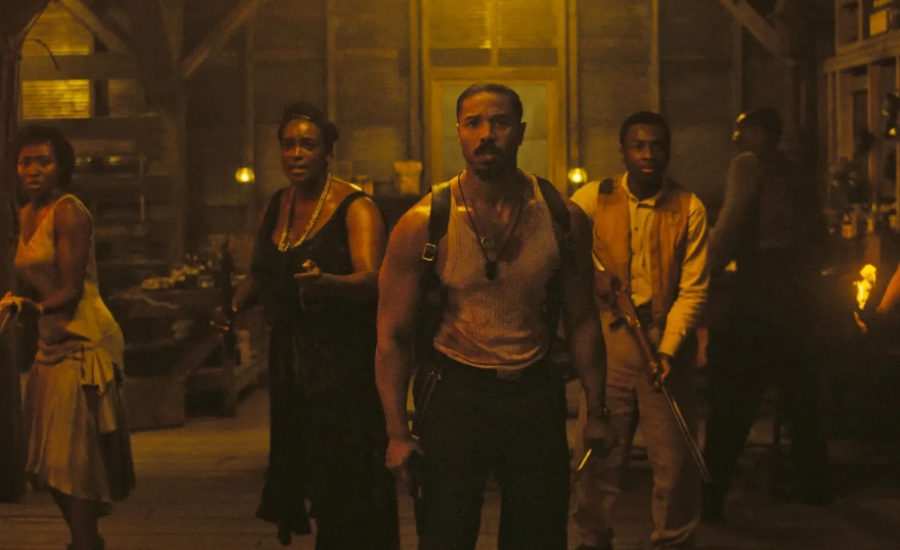Black Civil Rights Leaders Condemn ICE Raids Amid Nationwide Protests
Nationwide protests follow L.A. immigration raids as civil rights groups condemn federal troop deployments and warn of threats to civil liberties.
Written By EEW Magazine News Editors
A man shouts into a megaphone outside City Hall during a protest on Wednesday, June 11, 2025, in Los Angeles. (AP Photo/Ethan Swope)
A targeted ICE raid in Los Angeles’ vibrant garment district has ignited a nationwide uproar, sparking protests in over 45 cities and drawing sharp criticism from civil rights organizations over the federal government’s aggressive tactics.
The catalyst came on June 6, when Immigration and Customs Enforcement (ICE) agents conducted a series of coordinated operations at multiple businesses, detaining more than 100 undocumented workers.
Within hours, demonstrators flooded the streets of downtown Los Angeles, joined by residents of historically Black and immigrant neighborhoods.
Los Angeles police arrest a protester on Wednesday, June 11, 2025, in Los Angeles. (AP Photo/Ethan Swope)
By midweek, the unrest had not only persisted but intensified, with local authorities imposing nightly curfews and summoning over 2,000 National Guard troops, alongside 700 U.S. Marines—the first such deployment in the city since the 1992 uprising.
Though protests have dominated headlines, there’s another side to the story, one where many believe the government is simply doing its job.
The majority of Americans do express support for deportation policies, especially when framed around enforcing immigration law. For instance, a January 2025 Axios/Ipsos survey found 66% of U.S. adults favor deporting immigrants who are in the country illegally.
That support varies across party lines: 93% of Republicans back deportations in general compared to 43% of Democrats and 67% of independents.
Meanwhile, a Pew Research poll from late February to early March 2025 showed that 32% of U.S. adults believe all undocumented immigrants should be deported, while 51% say some should. Support intensifies when deportations are directed at those accused of criminal activity. Nearly 97% of respondents in the Pew survey endorsed deporting undocumented immigrants convicted of violent crimes
AP
While Los Angeles remains the epicenter of the protests, the ripple effects are being felt nationwide. From New York to Seattle, Houston to Philadelphia, protesters have taken to the streets in what some are calling the largest coordinated immigration-related demonstrations in over a decade.
In New York, more than 100 people were arrested during a sit-in outside Trump Tower. In Seattle, protesters burned flags outside a federal building. In Chicago, tensions flared when a driver plowed through a crowd, leaving a woman injured. And in Philadelphia, traffic was shut down near ICE headquarters amid violent clashes that left multiple people wounded.
Police fire chemical irritants during protests over President Donald Trump’s stepped-up enforcement of immigration laws, Wednesday, June 11, 2025, in Las Vegas. (AP Photo/John Locher)
States of emergency have been declared in cities like Spokane and Las Vegas. Local officials are scrambling to maintain order as protests show little sign of waning.
Critics say the federal response has only inflamed tensions. California Governor Gavin Newsom publicly condemned the White House’s decision to override state authority and federalize the National Guard, calling it “a brazen abuse of power” and warning that the move compromises California’s ability to respond to concurrent crises, including raging wildfires.
Mayor Karen Bass criticized the deployment of National Guard troops and Marines as a “deliberate attempt” by the Trump administration to “create disorder and chaos in our city.”
She made a plea to the federal government: “Stop the raids.”
LA Mayor Karen Bass expresses support and concern for immigrant communities. (Credit: Patrick T. Fallon/AFP/Getty)
Even amid the recent ICE raids and protests, opinion remains divided, though leaning toward enforcement among large segments of the population. A June 4–6 survey by CBS News/YouGov found that 54% of respondents approved of President Trump’s deportation efforts.
However, this support depends heavily on context: while people back deportations generally, fewer endorse aggressive tactics like using active-duty military or separating families.
Among the loudest critics are leaders from the African American community, who see the moment as a convergence of struggles.
On June 9, a coalition of civil rights organizations—including the NAACP, National Urban League, and The Leadership Conference on Civil and Human Rights—issued a rare joint statement. It denounced not only the ICE raids but also the use of military force against civilians, particularly in communities of color that have long borne the brunt of policing and government surveillance.
For many African American leaders, the current protests are not just about immigration, they are a continuation of the broader fight for justice and equity. Echoes of past movements are unmistakable, with organizers drawing parallels between today’s immigrant rights movement and the Civil Rights era.
Getty
“We know what it is to be targeted, demonized, and detained,” said Rev. Alisha Jordan, a clergy leader from South Los Angeles who helped organize one of the early protests. “When one community is under attack, we’re all at risk.”
That sentiment has fueled a surge of Black-led solidarity events from Atlanta to Denver. In some cities, traditional civil rights groups are working hand-in-hand with immigrant advocacy networks to mobilize resources, organize legal aid, and coordinate peaceful demonstrations.
As the protests swell, public opinion remains sharply divided. A recent YouGov poll found that 47% of Americans disapprove of deploying U.S. Marines to Los Angeles, compared to 34% who support the move. Sentiment was similarly split over the use of National Guard troops.
White House officials maintain that the administration’s actions reflect the will of the American people and are necessary to preserve law and order in sanctuary cities that, in their view, defy federal authority.
But critics argue that what’s at stake goes beyond immigration enforcement. They see a deeper erosion of civil liberties and a dangerous normalization of militarized policing.
Organizers are now turning their attention to June 14, planning a nationwide day of action dubbed “No Kings Day” to coincide with a controversial military parade in Washington, D.C. At least 1,500 communities are expected to participate in coordinated demonstrations, with calls to end mass deportations, halt the use of military force against civilians, and release those detained during the protests.
For many African American activists, this is not just a moment of resistance, it is a call to recommit to the unfinished work of racial and social justice.
More for You on EEW Magazine Online:












